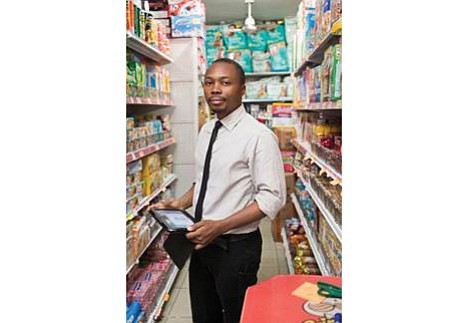Computer app finds surplus food for the poor in Nigeria
4/28/2017, 5:31 p.m.
Trice Edney News Wire/Global Information Network
Nigerian-born Oscar Ekponimo was 11 when his family was struck by misfortune. His father had a partial stroke, causing him to lose his job, and with it, the family income.
“For the next three years we had little food in the house,” Mr. Ekponimo recalls. “If we had one small meal at the end of the day, it was a good day. I recall one instance when all I ate in a 48-hour period was a biscuit snack a friend shared with me at school.
“My mom used to remind us that the hunger was not forever,” he said. “That always kept me going.”
Mr. Ekponimo’s brush with hunger would later drive him to create uses of the computer cloud, such as “Blue Valentine,” that would find hot meals for indigent street kids. That was followed by SalvageHub, and finally his latest app, Chowberry, a program that earned him the International Telecoms Union Award for Technology Innovation.
Chowberry is a cloud-based software application that cuts food waste and redistributes vital nutrition to people in need. It uses the barcodes on food products to alert retailers when the end of shelf life is approaching and helps redistribute these discounted products to individuals and to food relief agencies.
An award from the Rolex watch company in 2016 is helping to perfect the program, with the initial goal of delivering safe, healthy nutrition to low-income Nigerian households.
Rolex funds will go toward hiring engineers to upgrade the software, ensuring the application is more robust, and scaling up the organization by adding more retail partners.
Mr. Ekponimo is an alumnus of Stanford University’s Technology Ventures Program and earned a bachelor of science degree in computing from Nigeria’s University of Calabar. He is passionate about IT and its prospects for developing solutions for private and public enterprises.
Now one of Time magazine’s “Next Generation Leaders,” the 30-year-old still dedicates his work to addressing the deprivation he knew in his own life.
“I had several job offers from big (technology) firms over the past few years. But Chowberry is what I am passionate about. I want to see it grow and continue to benefit people’s lives,” he said.
“When I think of the millions of people who are food-deprived, counting on me to give them some relief, to help alleviate their suffering, I am driven to make Chowberry a success. I can never throw in the towel.”
He said he saw an opportunity to provide affordable nutrition to millions of people while providing retailers with a sustainable system for managing the end of shelf life.
“This is a win-win solution.”







